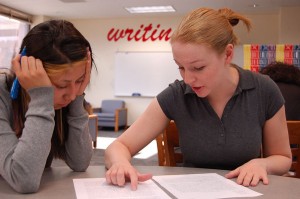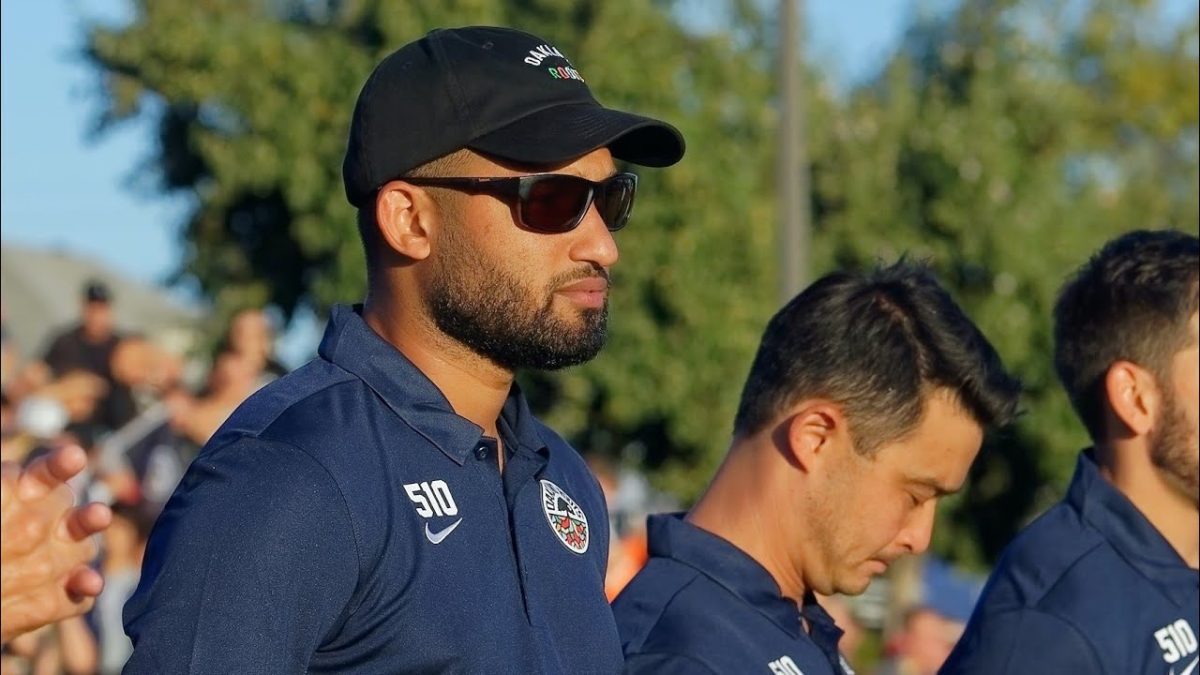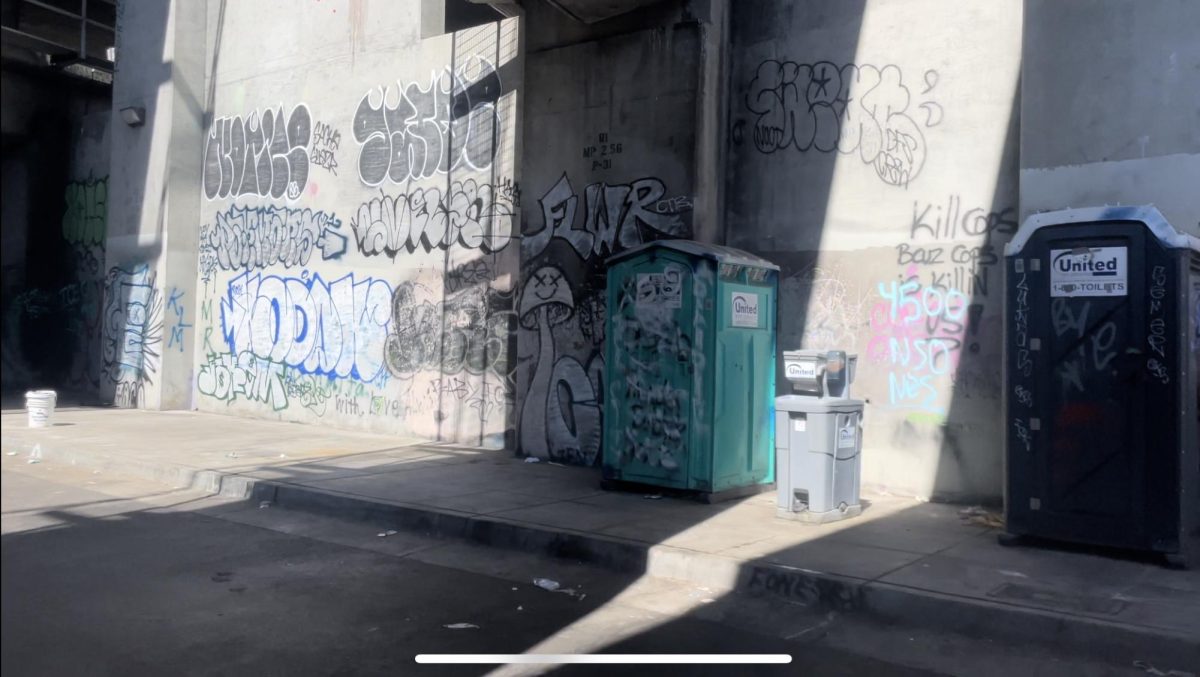 Two new programs offered by the Student Center for Academic Achievement have on-campus tutors excited to help students get ahead in classes.
Two new programs offered by the Student Center for Academic Achievement have on-campus tutors excited to help students get ahead in classes.
SCAA has been offering help for students needing a little extra help in statistics, English and a few other subjects for years.
“Tutors help students pass their classes and eventually graduate,” said SCAA Director
John Whitman. “So we feel that the SCAA provides a very important contribution to student success.”
During the last scholastic year, SCAA aided over 4,000 students, providing over 11,000 appointments and online writing consultations, according to Whitman.
Tutor Anton Power has been teaching at SCAA for about a year and knows the value of the existing programs for students on campus.
“It’s a very good resource mainly because the students themselves can come in,” explained Power. “If they want to learn, they can get some extra information from their peers.”
Another highly qualified tutor, John Merrill, became a SCAA tutor because he missed the interaction with students he used to have as a professor on the East Coast.
Merrill started his career off as an Ivy League professor and then went on to other professions as a corporate executive and a consultant.
Upon retiring, teaching started calling to him again.
“Part of the reason I came to tutor is because I love to develop new minds,” said Merrill. “I love helping them get better at things. The center, located on the second story of the library, not only helps students struggling in their classes but also those who wish to improve already outstanding grades.
“Most times, a student will be trying to raise their MCTgrade from an A- to an A,” added Whitman.
Tutors are excited and willing to help students during regular SCAA hours, available on their website accessible from the school’s webpage, but are especially anxious to get students involved in two new programs.
One new program makes it easy for all students to get help in their classes even if they can’t make it to the library during tutoring hours.
“eTutoring began at the beginning of October 2010 and has already had 135 visits,” said Whitman.
eTutoring is now available online 24 hours a day for students who request extra help in classes.
The idea is a sort of online video chat that students can access from home.
SCAA eTutors will always be able to be seen and heard on the students computer whether they have a video program or not, but Power finds it more helpful if a student has some sort of video chat as well to make things go a little smoother.
“It’s kind of weird staring into a blank screen,” said Power. “But it helps a lot.”
Power feels that the eTutoring program is helpful because both he and the students can work from home and the hours are more flexible.
“Most students tend to be in school during SCAA hours,” added Power. “It’s really helpful for students like that.”
Power isn’t the only tutor hat enjoys the freedom online tutoring offers.
“I believe strongly in the new eTutoring program,” said Merrill. “It expands SCAA offerings that we normally wouldn’t be able to staff because of budget constraints.”
Merrill is also a fan of the flexibility and ability to customize the learning experience for students on campus, though he still feels there is no substitute for good old-fashioned one on-one tutoring.
One helpful tool that eTutoring offers is a direct way to give feedback for the tutor right on the website, even though the student may not meet them in person, allowing the SCAA team to make the program as beneficial as possible.
The second addition, Peer Led Undergraduate Study (PLUS) tutoring, is designed for specific classes.
Small study groups, no larger than about eight students, are formed in classes that have been identified by faculty as problem courses for many students.
“They’re a nice size,” said Whitman. “It’s not a full class that attends, so you don’t get lost and it’s easier to get individual attention.”
PLUS offers specialized tutoring for eight different math courses.
“The PLUS program has not been as successful and the percentage of enrolled students in the courses that use the PLUS groups has been low,” added Whitman. “We will alter the PLUS schedule for the Winter quarter and try to make some of the groups available at different times than the times we offered in the Fall quarter.”
A SCAA tutor will sometimes sit in on the actual courses and work closely with the professor to give feedback about what the students in the PLUS groups are having the most trouble with or what they understand well.
“I’ve talked to the professors [participating in the PLUS program],” said Power, “and from what I understand, students should really start to come in and get some extra help, especially since the money is there for them specifically.”
SCAA, which releases its workshop and PLUS tutoring schedule at the beginning of each quarter, is enthusiastically promoting their new and old tutoring programs.
Though SCAA is proud of its programs, the staff is always working to improve the benefits for students.
“This will include more quantitative evidence of the SCAA’s contributions and influence, including course completion and GPA compared to students who did not use the SCAA.”
“The SCAA is developing an assessment plan for both the program and the tutors who work at the SCAA,” said Whitman.
“The best way to learn about the programs is to just come into SCAA,” added Whitman, passing out literature about the various tutoring programs.
The SCAA team works hard to provide these programs at no cost to students and make them as beneficial as possible.
All students have to do is be willing to accept a little help.“Most students tend to be in school during SCAA hours,” he said. “It’s really helpful for students like that.”
Another helpful tool that E-tutoring offers is a direct way to give feedback for the tutor, allowing the SCAA team to make the program as beneficial as possible.
The second addition, Peer Led Undergraduate Study (PLUS) tutoring, is designed for specific classes.
Small study groups, no larger than about eight students, are formed in classes that have been identified by faculty as problem courses for many students.
“They’re a nice size,” said Whitman. “It’s not a full class that attends, so you don’t get lost and it’s easier to get individual attention.”
A SCAA tutor will sometimes sit in on the actual courses and work closely with the professor to give feedback about what the students in the PLUS groups are having the most trouble with or what they understand well.
“I’ve talked to the professors [participating in the PLUS program],” said Power, “and from what I understand the students should really start to come in and get some extra help, especially since the money is there for them specifically.”
SCAA, which releases its workshop and PLUS tutoring schedule at the beginning of each quarter, is enthusiastically promoting their new and old tutoring programs.
“The best way to learn about the programs is to just come into SCAA,” added Whitman, passing out literature about the various tutoring programs.
The SCAA team is working hard to provide these programs at no cost to students and make them as beneficial as possible.
All students have to do is be willing to accept a little help.
















